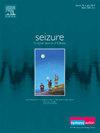晚发性癫痫诊所:从临床诊断到生物标志物。
IF 2.7
3区 医学
Q2 CLINICAL NEUROLOGY
引用次数: 0
摘要
晚发性癫痫(Late-onset epilepsy,LOE)是一种独特的病理临床实体,从发病到预后都有其独特的自然史,因此需要专门的护理。我们缺乏一个普遍接受的定义,但晚发性癫痫通常被认定为在 60 或 65 岁之后发病的癫痫。与年轻人的癫痫不同,LOE 几乎默认为病灶性,继发于获得性病因,由于其不典型的半身形态、较高的合并症负担、虚弱以及继发中风和痴呆的风险增加,给诊断和管理带来了独特的挑战。LOE 诊所的建立就是为了应对这些挑战,它提供了一种多学科方法,以优化五旬期后新发癫痫患者的预后。LOE 诊所对于全面护理至关重要,它不仅提供癫痫发作管理,还监测和处理相关的合并症。这种护理模式涉及神经科医生、初级保健提供者、心脏病专家、精神卫生专业人员和社会工作者之间的合作,以有效管理 LOE 患者的复杂需求。LOE患者普遍存在认知功能障碍,这凸显了定期进行认知评估和干预的必要性。生物标志物研究,尤其是涉及淀粉样蛋白β的研究,为早期诊断和更好地了解LOE与阿尔茨海默病之间的相互作用提供了前景广阔的途径。在主要转诊中心建立 LOE 诊所可以提高医疗服务提供者的专业知识,改善患者的治疗效果,并促进研究,从而推动诊断和治疗策略的发展。总之,LOE 诊所在满足患有癫痫的老年人的多方面需求方面发挥着至关重要的作用,它适合当地的资源和挑战,从而加强了全球人口老龄化过程中的癫痫护理。本文章由计算机程序翻译,如有差异,请以英文原文为准。
Late-onset epilepsy clinic: From clinical diagnostics to biomarkers
The unique patho-clinical entity of late-onset epilepsy (LOE), distinguished by its distinct natural history, from its onset to the prognosis it portends, necessitates specialized care. We lack a universally accepted definition, but LOE is typically identified as epilepsy onset after the age of 60 or 65. Unlike epilepsy in younger individuals, LOE is almost by default focal in origin, secondary to acquired etiologies, and presents unique diagnostic and management challenges due to its atypical semiology, higher comorbidity burden, frailty, and increased risks of subsequent stroke and dementia. LOE clinics have been established to address these challenges, providing a multidisciplinary approach to optimize outcomes in patients with new-onset seizures beyond the fifth decade of life. LOE clinics are essential for comprehensive care, offering not only seizure management but also monitoring and addressing associated comorbidities. The care model involves collaboration among neurologists, primary care providers, cardiologists, mental health professionals, and social workers to manage LOE patients' complex needs effectively. The prevalence of cognitive dysfunction in LOE patients underscores the need for regular cognitive assessments and interventions. Biomarker research, particularly involving amyloid beta, offers promising avenues for early diagnosis and a better understanding of the interplay between LOE and Alzheimer's disease. Establishing LOE clinics in major referral centers can enhance provider expertise, improve patient outcomes, and facilitate research to advance diagnostic and therapeutic strategies. In conclusion, LOE clinics play a critical role in addressing the multifaceted needs of older adults with epilepsy, tailored to local resources and challenges, thus enhancing epilepsy care in an aging global population.
求助全文
通过发布文献求助,成功后即可免费获取论文全文。
去求助
来源期刊

Seizure-European Journal of Epilepsy
医学-临床神经学
CiteScore
5.60
自引率
6.70%
发文量
231
审稿时长
34 days
期刊介绍:
Seizure - European Journal of Epilepsy is an international journal owned by Epilepsy Action (the largest member led epilepsy organisation in the UK). It provides a forum for papers on all topics related to epilepsy and seizure disorders.
 求助内容:
求助内容: 应助结果提醒方式:
应助结果提醒方式:


